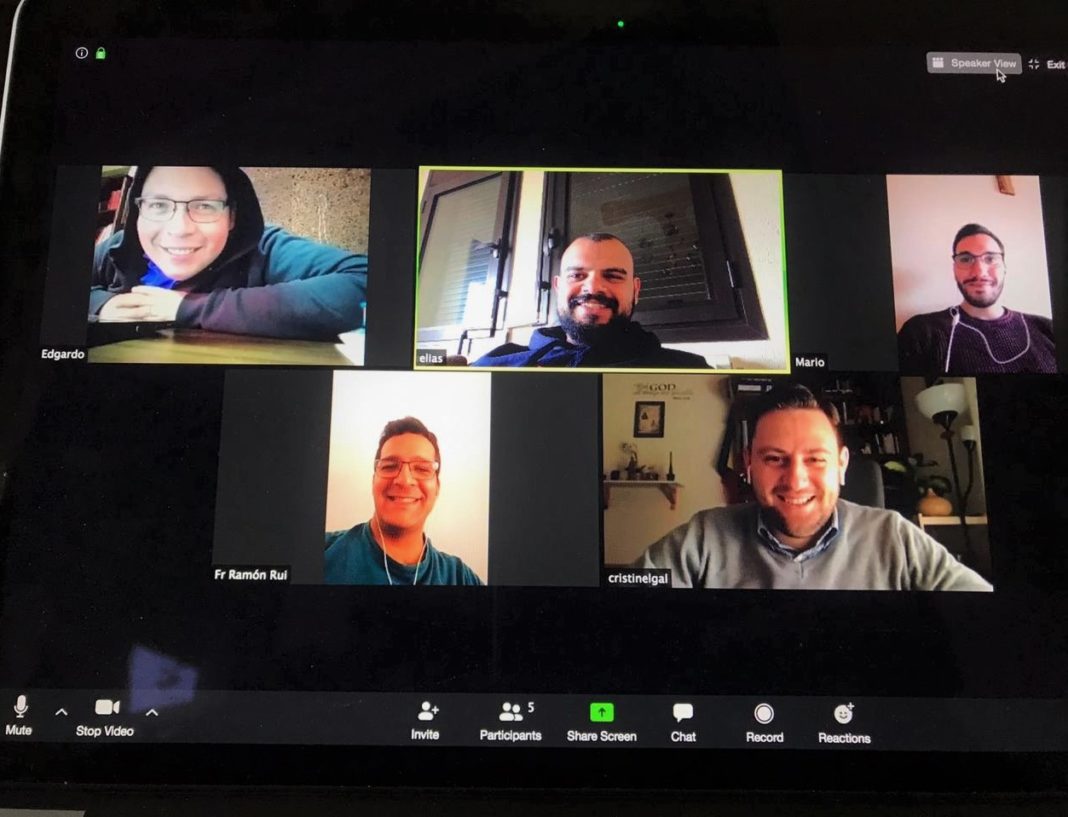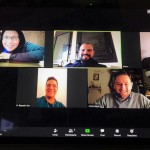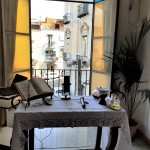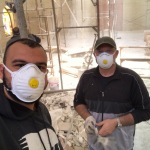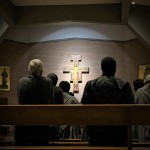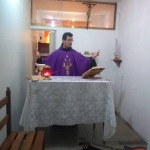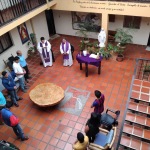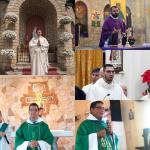Some of our confreres would like to talk about their experiences during this time of pandemic. What they have to say could provide some concrete answers to the questions we are all commonly asking ourselves.
All of us friars are suffering from the inability to be in contact with other people. Our sense of mission is weakening and everything that we had been doing for others now seems insignificant. It is not easy to find meaning in this whole absurd situation, but that is what the people living near us hope we can provide. They are wondering why they are being forced to live through this situation. Many are saying that God has abandoned them and is punishing them. Thus starts, in a completely new way, the true evangelization of a God who loves us above everything, who even sent his own Son for our sake. In Jesus, God shows us his mercy and peace, his benevolence and love.
At this time, our communities are trying to help these people turn their thoughts and hearts toward God, even though nothing seems to make sense. The problem is how to do it.
This is the question that we friars are asking ourselves. We are a group of friars from all over the world who share a common life together at the Seraphicum in Rome. This group is comprised of Friar Elias Paolo MARSWANIAN from Lebanon (currently in Zahle, Lebanon); Friars Manuel Edgardo NÚÑEZ GALLARDO and Ramón Alfredo RUI UREÑA from Venezuela (currently in in Pueblo Llano and Caracas, Venezuela); Friar Cristinel GAL from Romania (currently at the Seraphicum) and Friar Mario RAVANNI from Italy (currently in Portici, Naples, Italy).
Being friars, we have managed to find a few ways to stay “in contact” with people. In almost all the communities where we live, we have been able to reach out using various forms of social media, such as Facebook, Instagram, YouTube and Skype as well as radio and, TV. We have used these networks to keep in touch with people and to stream celebrations of the Liturgy of the Hours, the Mass, the Rosary, the Chaplet of Mercy, Eucharistic Adoration, the Angelus, and various formation meetings for different groups in our Jurisdictions.
Friar Cristinel: “At the Seraphicum, all the student friars take online courses, including the friars who study at the Seraphicum itself and those who study elsewhere.”
Friar Mario: “One particular way of being with people who live here in Portici, besides using social media, is to look out one’s window and talk and pray with the people living in the immediate vicinity of the friary. It’s a way of encouraging them and telling everyone that we are still here for them, even if it is in a different way.”
Friar Elias: “Here in Zahle, we must, for the time being, remain inside the friary. We no longer have Mass with the faithful. We celebrate our own Mass in the morning and then start our day, working in the garden, cleaning, cooking, reading and watching the news. In the evening, we broadcast Vespers and Eucharistic Adoration on our Facebook page.”
Friars Edgardo and Ramón: “The situation in Venezuela is troubling, first, because, for some years now, we have been suffering a severe socio-economic and health crisis. Our hospitals lack even the most important medicines and no medical center has the capacity to deal with a pandemic like this. Many Venezuelans are doing voluntary quarantine here in Pueblo Llano, but not all of them, even though it is now compulsory. We really hope that the situation will not worsen due to the shortage of food, medicine and hospitals. It could be a disaster for our country.”
“In Caracas, we only have three friars in the community. The rest are locked down in other friaries due to various measures the government has put in place. During this quarantine period, we try to be close to the people by opening the doors of our San Francisco Javier Church a few hours every day, so those who need to confess and pray can do so. Many come in looking for a little hope and perhaps some food to take home. Charitable services are still offered by our local parish Caritas. The friars who teach at school stay in contact with those in charge of the courses, sending and receiving homework via the Internet to keep the students up to date.”
“Perhaps this virus is teaching us something. Although we may have lived our lives superficially until today, “tomorrow” will bring with it more importance and meaning. Nothing will be taken for granted anymore. However, we may still experience the beauty of relationship. We need no longer be afraid of the other, of the different. Until now, we had been regressing instead of evolving in our relationship with God, others and the world. Perhaps this is the shock we need to understand how beautiful and fragile we are and to begin living with full and trusting abandonment in God.”
“We continue to entrust ourselves into the hands of God and Our Lady of Coromoto.”
Office of Communications






